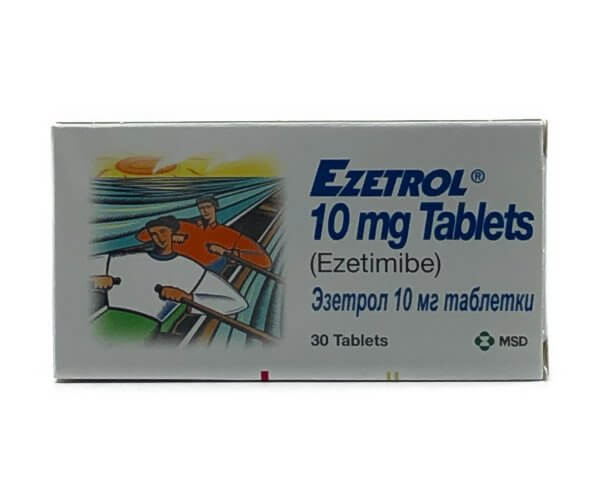Zetia/Ezetrol/Ezecor (
generic name: ezetimibe) is a medication used to treat high blood cholesterol (
hypercholesterolemia) and certain other blood fat abnormalities. It is a member of the class of drugs known as
cholesterol absorption inhibitors (CAIs), which prevent the intestines from absorbing cholesterol and reduces the cholesterol level normally present in liver cells. As the liver cells’ cholesterol levels decline, more cholesterol is taken up from the bloodstream, lowering the total amount of cholesterol in the blood.
Zetia may occasionally be administered in conjunction with drugs belonging to the
statin family. It is not intended for children below the age of 10 years.
Caution
Pregnant women should not be taking Ezecor as well as a statin. If you are trying to become pregnant or think you are pregnant, consult a doctor.
Dosage
The doctor will determine the dosage and course of treatment. Zetia is normally taken by mouth, along with a little water. The tablet shouldn’t be cut in half. Doctors may also prescribe a diet to reduce cholesterol levels before beginning Zetia medication.
The usual dosage is one tablet taken orally once a day. It can be taken with or without food, at any time of day.
Storage
Keep out of direct sunlight and at a temperature lower than 25°C/77°F. Refer to our blog on
medication management to prevent drug mishaps when stored.
FAQs
Can I drive/operate machinery while taking Zetia?
Zetia is not expected to affect a person’s driving or machine-operating abilities. However, be aware that some people may experience vertigo following a Zetia dose.
Is it possible to take Zetia and a statin at the same time?
It is possible to take Zetia and a statin at the same time if the doctor has prescribed both together. Please consult a doctor before using both medications.
What is the difference between Zetia and statins?
Statins slow the liver’s production of cholesterol, while Zetia has a different mechanism of action and lowers blood cholesterol by reducing cholesterol absorption from the intestine.
This text is for informational purposes only. Please consult a doctor or pharmacist before using any medication.
Read the information leaflet that comes with the medication.
If after taking Zetia, a sudden allergic reaction (anaphylaxis) occurs, with symptoms like swelling of the face, tongue, or throat making it difficult to breathe or swallow, or there is wheezing, hives, rash, blistering, or peeling of the skin, call a doctor or 911 right away, or go to an emergency room immediately.
Most people who use Zetia do not experience any negative side effects. Doctors prescribe this medication because they assess the benefits of such treatment outweigh any likely unwanted effects.
The common side effects that have been reported include:
- Headache
- Stuffy nose
- Sore throat
- Fatigue
- Diarrhea
- Joint pain
Not all side effects are listed here. If these or other unlisted symptoms persist or worsen, consult a healthcare provider or pharmacist.
Zetia is used to treat different kinds of high cholesterol in people whose levels cannot be brought under control with diet and exercise alone. Specifically, Zetia is indicated for:
- Primary (familial) hypercholesterolemia: Familial hypercholesterolemia (FH) is a genetic disorder that causes high levels of low-density lipoproteins (LDL) and total cholesterol in the blood, which can lead to heart disease at a young age.
- Sitosterolemia: Sitosterolemia is an inherited condition characterized by an excess accumulation of plant sterols in the blood. Plant sterols are fatty substances (lipids) from vegetable oils, nuts, and other plant-based foods. It can lead to premature heart disease and other complications.










